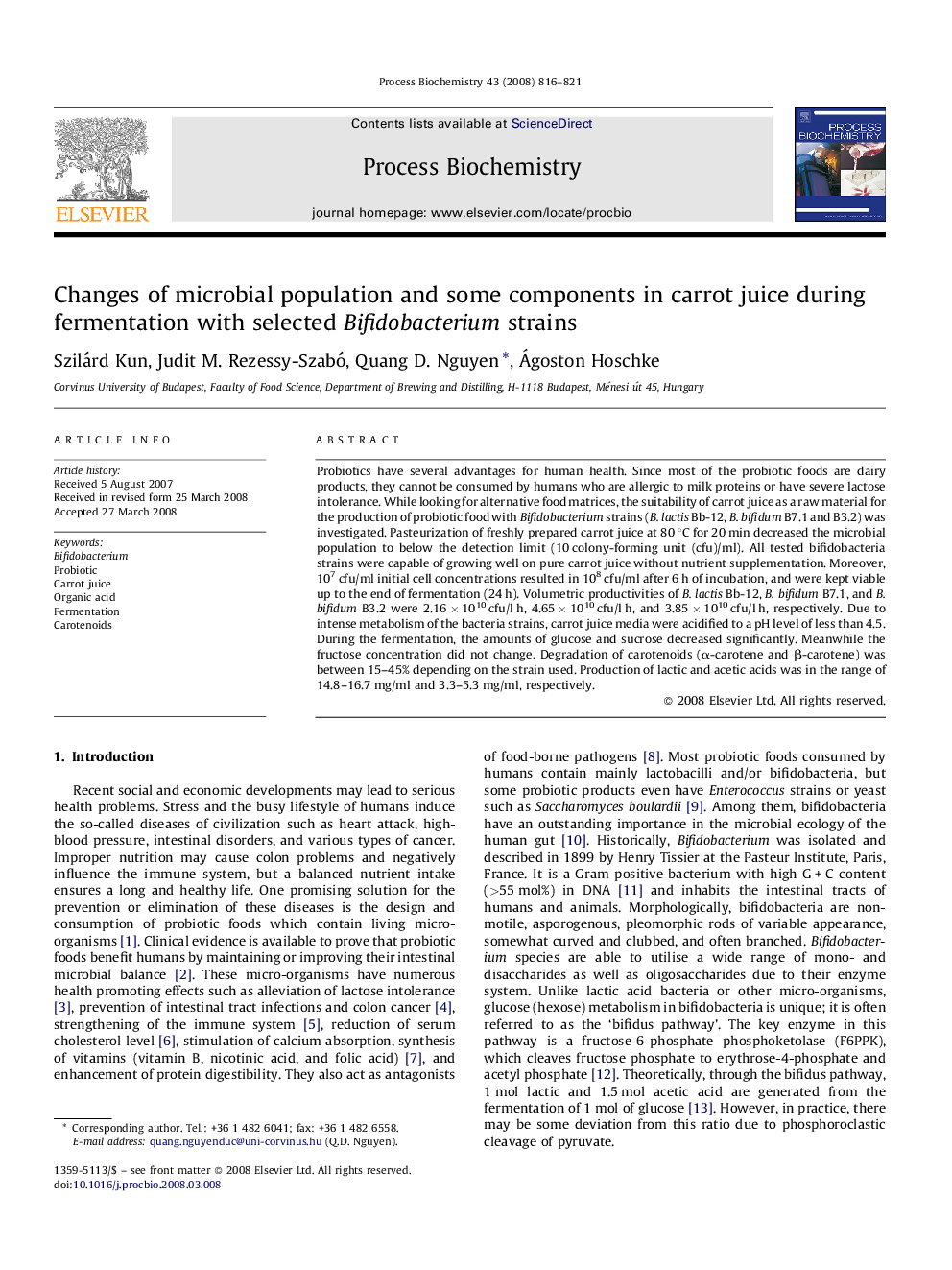| Article ID | Journal | Published Year | Pages | File Type |
|---|---|---|---|---|
| 35527 | Process Biochemistry | 2008 | 6 Pages |
Probiotics have several advantages for human health. Since most of the probiotic foods are dairy products, they cannot be consumed by humans who are allergic to milk proteins or have severe lactose intolerance. While looking for alternative food matrices, the suitability of carrot juice as a raw material for the production of probiotic food with Bifidobacterium strains (B. lactis Bb-12, B. bifidum B7.1 and B3.2) was investigated. Pasteurization of freshly prepared carrot juice at 80 °C for 20 min decreased the microbial population to below the detection limit (10 colony-forming unit (cfu)/ml). All tested bifidobacteria strains were capable of growing well on pure carrot juice without nutrient supplementation. Moreover, 107 cfu/ml initial cell concentrations resulted in 108 cfu/ml after 6 h of incubation, and were kept viable up to the end of fermentation (24 h). Volumetric productivities of B. lactis Bb-12, B. bifidum B7.1, and B. bifidum B3.2 were 2.16 × 1010 cfu/l h, 4.65 × 1010 cfu/l h, and 3.85 × 1010 cfu/l h, respectively. Due to intense metabolism of the bacteria strains, carrot juice media were acidified to a pH level of less than 4.5. During the fermentation, the amounts of glucose and sucrose decreased significantly. Meanwhile the fructose concentration did not change. Degradation of carotenoids (α-carotene and β-carotene) was between 15–45% depending on the strain used. Production of lactic and acetic acids was in the range of 14.8–16.7 mg/ml and 3.3–5.3 mg/ml, respectively.
